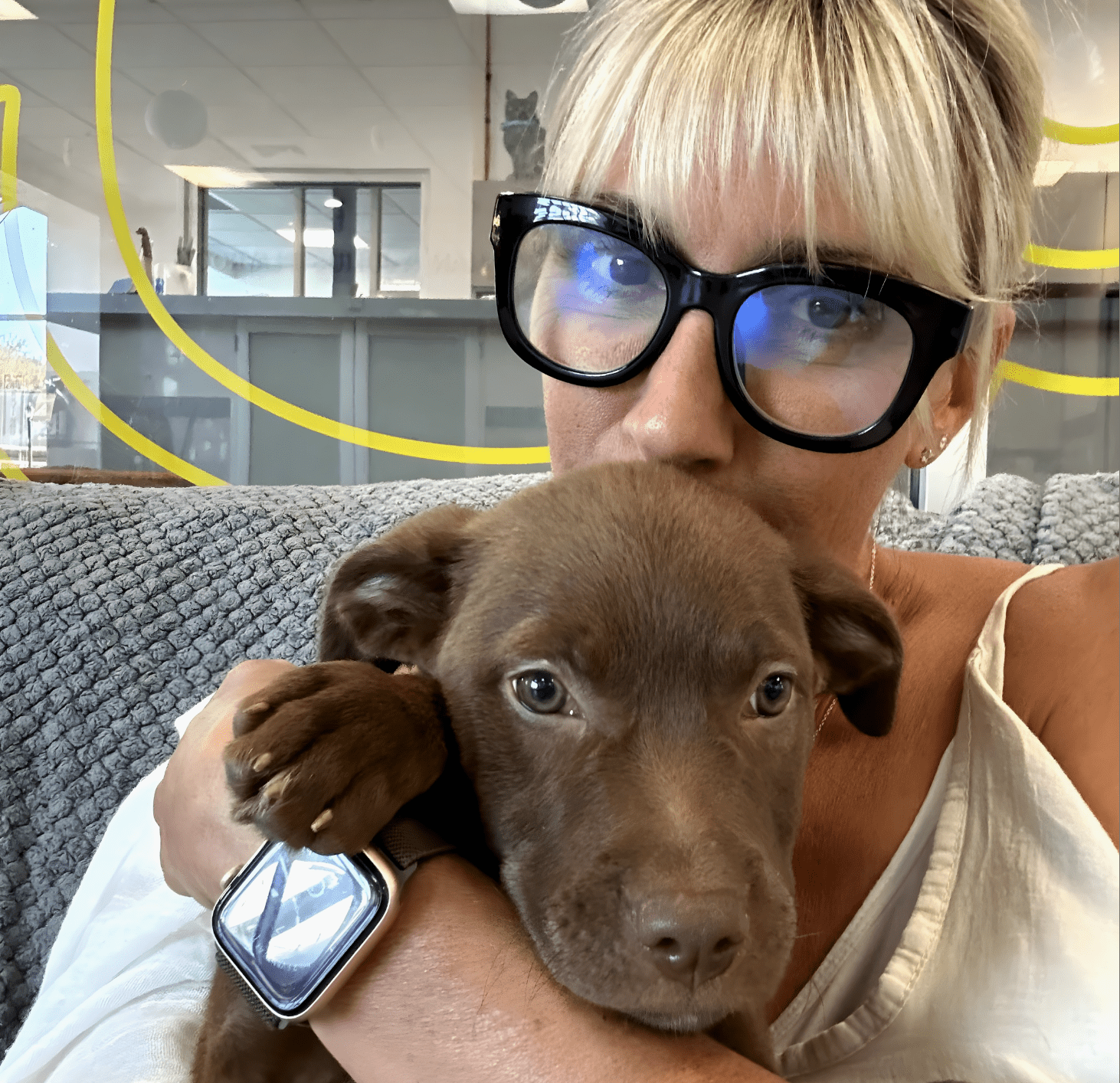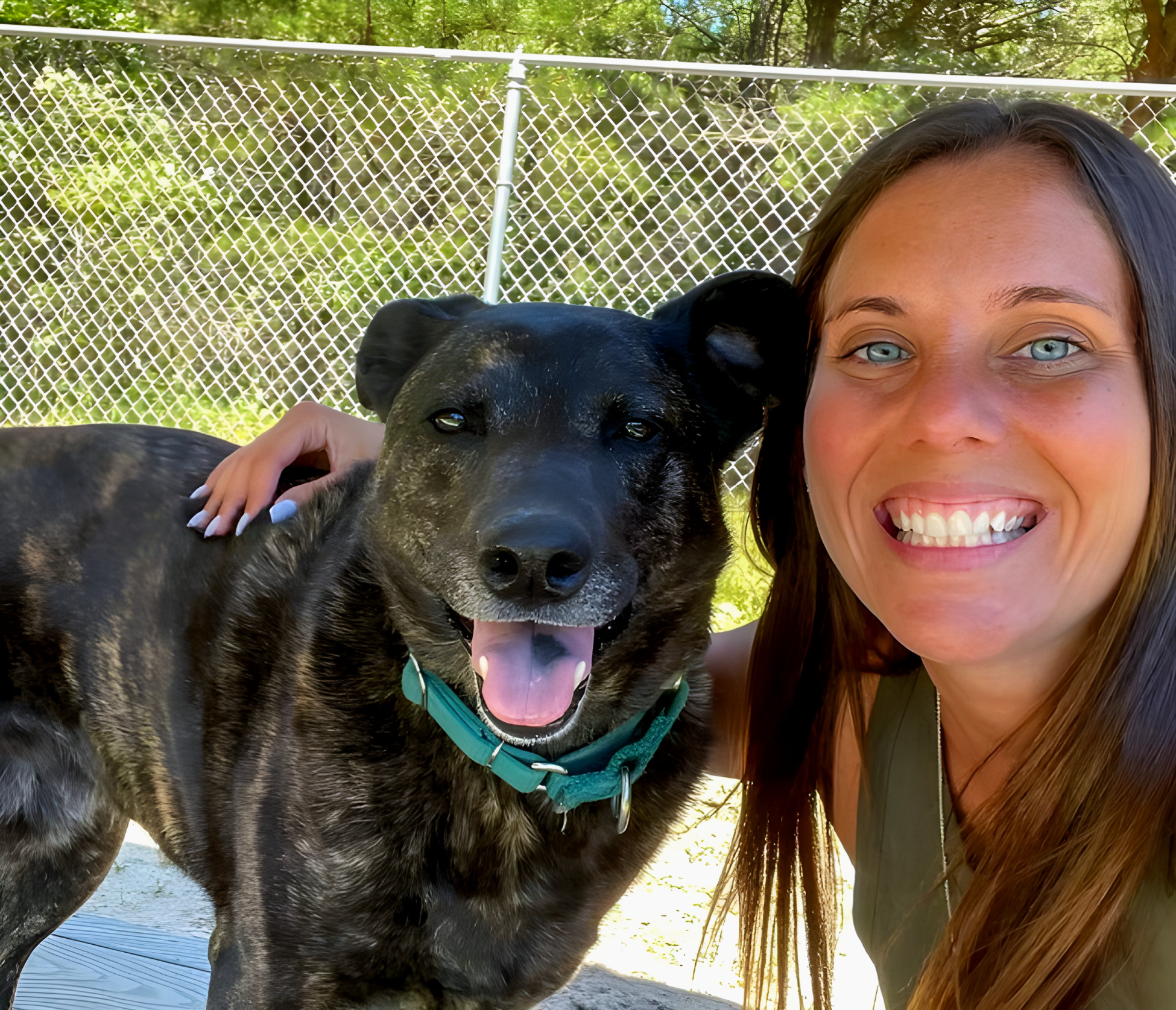Bideawee CEO Discusses the Pandemic Puppy Boom & Its Not-So-Cuddly Aftermath

In times of uncertainty and fear, what’s more comforting than a puppy?
When COVID-19 was rampant in 2020 and 2021, forcing people to stay in their homes, social distancing, and only interacting with others every so often, it seems a common coping mechanism was to adopt a puppy.
This led to the coining of the phrase “Pandemic Puppy Boom,” and The Washington Post reported that one in five American households adopted a puppy during the pandemic.
But it didn’t end there – and it didn’t necessarily end happily for the dogs either.
Dan’s Papers sat down with Leslie Granger, president and CEO of the Bideawee Adoption Center, to discuss the aftermath of the pandemic puppy boom. Bideawee has three adoption center locations – Manhattan, Wantagh and Westhampton. It has pet cemeteries in both Wantagh and Westhampton, and an animal hospital in Westhampton. Its Wantagh cemetery is known for being the burial site of Checkers Nixon, the 37th U.S. president’s dog.
Granger has been involved in animal rescues since 2005, when she worked at North Shore Animal League America. She started at Bideawee in 2010 as the vice president of development, and worked her way up to the top role.

A Conversation with Leslie Granger of Bideawee
The pandemic puppy boom happened in 2020 – everyone was getting a dog. What happened after that?
Now, a lot of people who got pandemic puppies are surrendering their dogs for economic reasons. They can’t afford the medical costs. They can’t afford to feed them. They have to move to a new apartment, which may not be pet friendly. We’re seeing animals surrendered more than in the past, and certainly the effect of more coming in and fewer going out means that shelters across the country are overcrowded, and it’s a crisis at this time, I would say.
Pandemic-era puppies are coming in. How many of them are going out?
We have definitely been seeing a slowdown in adoptions over the past year or two. The interesting thing is, it’s not just relegated to older dogs or older cats, but we’re seeing puppies not being adopted as quickly as they had been in the past. Pre-COVID, and certainly during COVID, if a puppy was available for adoption, they were out of the shelter within a week. You could not hold on to them. But right now, we are seeing something we’ve never seen before, which is puppies are starting to grow up in shelters. And I think that what we’re understanding is more people want dogs that are perhaps young, but that are already trained. I think people are worried about the time commitments. I think people are potentially worried about the cost.
Puppies aren’t going fast at animal shelters? Why?
We’ve all been scratching our heads over this. We think, now, people are overlooking puppies for, you know, an adult dog, that a young adult dog that they don’t have to put as much time, money and effort into. Sort of like a ready-to-go solution. People don’t want to house train a puppy at this point. Everybody’s lives are so busy and taken up compared to how they were during the pandemic with so many things, I think it’s difficult, I think, for people to add one more thing to their list.
How are shelters managing this?
Space is one of the biggest challenges that we’re facing. The other challenge, based on the fact that we’re not adopting out as many animals and more are coming in the door, is how do we get these animals into homes, even if it’s not a permanent home? So far, our foster program is hugely important to our ability to have the same amount of animals as we had last year or more, and to continue to be able to help other shelters, whether it’s our friends at Animal Care and Control, different municipal shelters on Long Island or shelters in different parts of the country. We’ve always prided ourselves on our foster program. We need more space, and so our foster community is the best way for us to free up space in the shelter.
Do any animals wind up being adopted by their foster families?
Oh yeah. We affectionately call them our “foster fails.” We love that to happen, because it’s also a great way if you’re not sure if you’re ready for the full-time commitment of the lifetime of 18 years, or whatever it may be of your pet, you can foster an animal. It gives people an opportunity to try on the responsibility of having a pet and in that time where you’re sort of figuring it out, you may end up falling in love with that one, and that’s your forever pet. And so we do see that quite a bit, but we also want some of our fosters to stay fostering, so that they’re serial fosters and we always have them to go to.
Does the Westhampton location face any unique challenges – such as seasonal residents leaving their dogs in shelters whenever they leave the East End?
I have heard that for years and years and years, and yet I have not seen it. I don’t know of anyone who dropped off a dog, just because the summer had ended and they were going back to the city or wherever they may be for the rest of the year.
We do see seasonal effects in that location – definitely, a slowdown after Labor Day, and largely in the deep winter months like January and February, when the snowbirds have flown south. But nowadays a lot of people look for dogs on the internet, and so people will see a dog at our Westhampton location, and come from all over to get it.
Any advice for anyone who adopted a pandemic puppy and is struggling? Or advice for anyone looking to adopt one now?
For people who may be struggling after having adopted, there are a lot of resources. Bideawee has a Community Initiatives Program. You know, it’s not necessarily out east, but we work with doing free and low-cost vaccination clinics, which you should look for.
You can ask your local shelter – do they have those, do they have pet food pantries? Human food pantries have also started adding pet food pantries, so there are many different resources for people who are looking for help and to not have to surrender their pet.
For people who are looking to adopt a pet now, make sure you and your family are all on the same page about what you’re looking for, about what the commitment means. It means understanding what your lifestyle is. Are you active enough to want to be outside with your dog? Are you somebody who wants a lap cat? You need to think about what kind of animal you are looking to add to your home.
Learn more at bideawee.org



